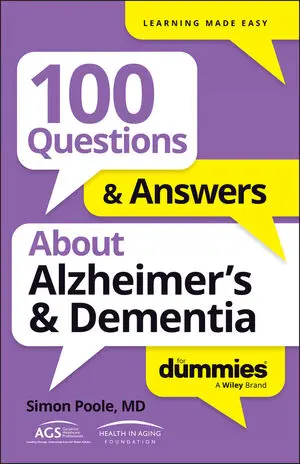Diagnosis is a two-part process. First, doctors conduct a variety of tests to rule out what the patient doesn't have. For example, they need to determine that a patient hasn't had a stroke, doesn't have Parkinson's disease or multiple sclerosis, isn't suffering from low thyroid levels, and isn't clinically depressed.
Doctors use standardized diagnostic criteria that outline the behaviors, physical findings, and cognitive symptoms that are typical of AD sufferers to "rule in" a diagnosis of AD. If your loved one meets the criteria for AD established by the American Psychiatric Association DSM (Diagnostic and Statistical Manual) or the National Institute of Neurological and Communicative Diseases and Stroke/Alzheimer's Disease and Related Disorders Association and no other underlying cause for his symptoms is found during a physical examination, then your doctor should feel confident in making a diagnosis of AD.
Cognitive deficits have many causes. Something as readily identifiable as depression, a thyroid problem, dehydration, urinary infection, vitamin deficiency, or medication side effects can cause people to act in a cognitively impaired manner. It doesn't always have to be AD. Appropriate diagnostic tests can help your doctor determine the cause of your loved one's problem and the best course of treatment.






